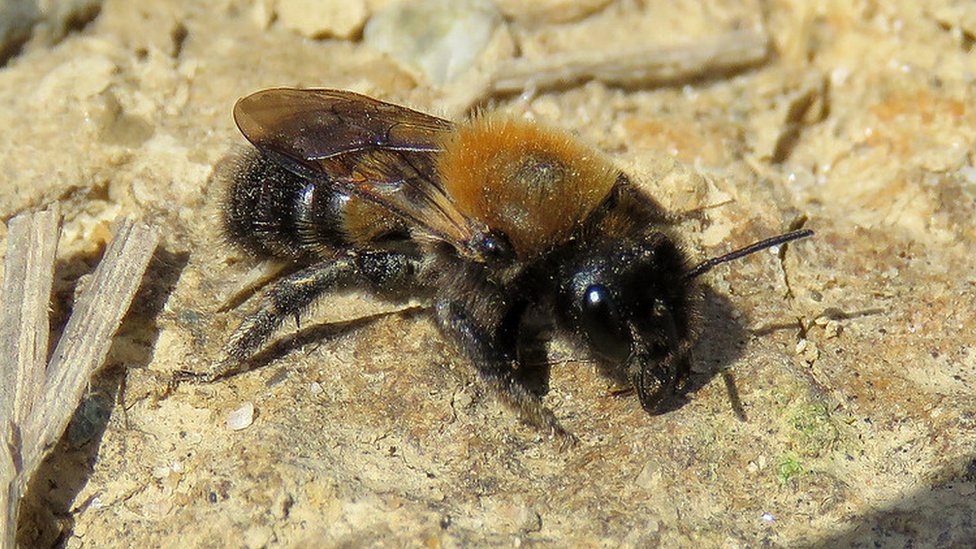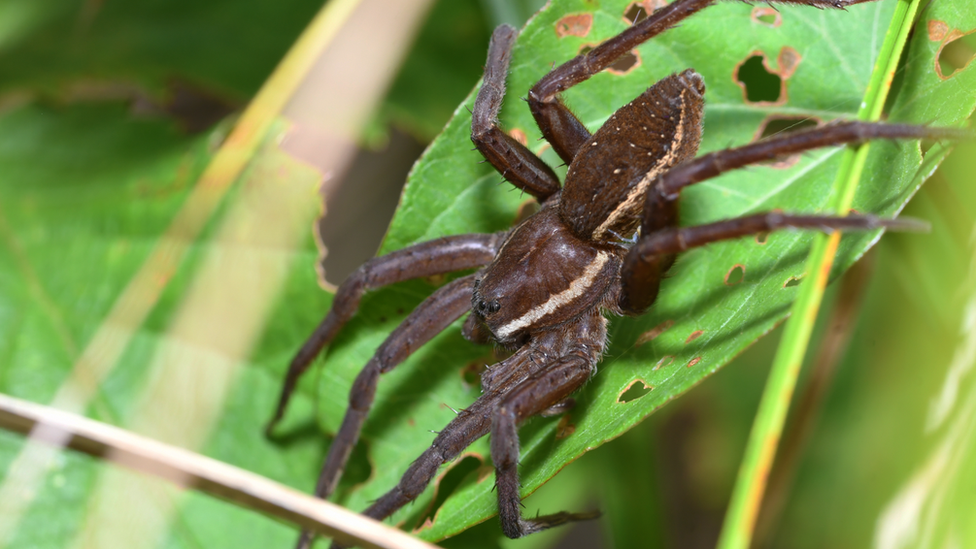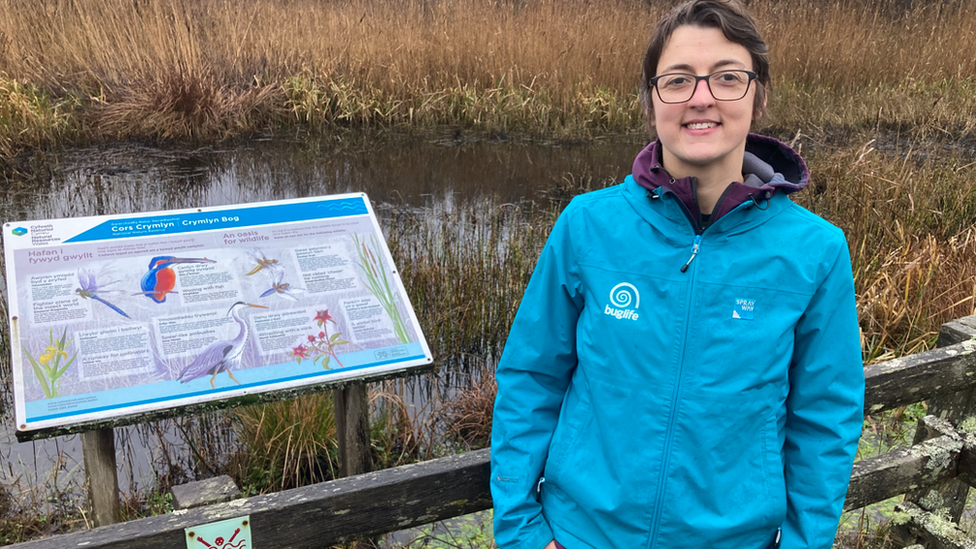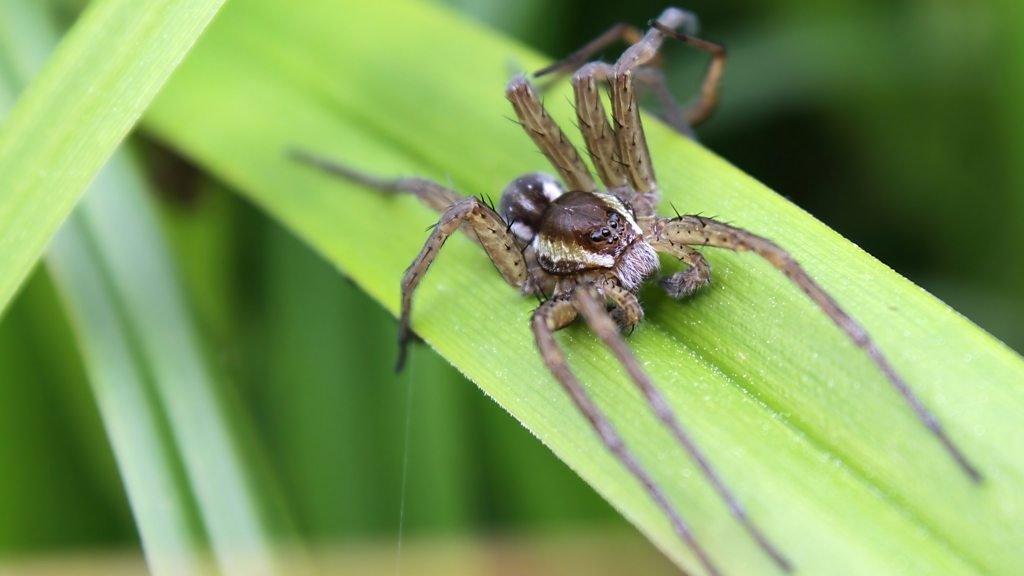Wales becomes first country to map important areas for insects
- Published
- comments

The Cliff Mason Bee is only found on two short stretches of clifftop on the Llŷn Peninsula, in north west Wales
Wales has become the first country in the world to map its most important areas for insects.
That's according to conservationists taking part in a five-year which project analysed 45 million records collected by naturalists to spot key sites.
Wales has suffered "drastic declines" in recent decades, according to the charity Buglife.
England and Scotland are also being mapped by experts, with hopes that a full Great Britain map can be produced one day.

One of the country's largest spiders can be found in Crymlyn Bog on the outskirts of Swansea
Wales is home to over 20,000 different invertebrate species and 17 Important Invertebrate Areas (IIAs) were found in Wales.
The areas that were studied were home to more than 10,800 species in total, 350 of which were classed as being "of conservation concern", while 15 were critically endangered.
They included the cliff mason bee - found nowhere else in Britain apart from on two short stretches of clifftop on the Llŷn Peninsula, in north west Wales.
And the scarce yellow sally stonefly, found only on the River Dee in the north east, and once feared extinct.
Invertebrates are animals that don't have a backbone.
Some have soft bodies, like worms, slugs and jellyfish.
Other invertebrates, like insects, spiders and crustaceans, have a hard outer casing called an exoskeleton which protects their body a bit like a suit of armour.
What is an IIA?

Clare Dinham, Wales manager for Buglife, hopes the new maps will help people celebrate wildlife
IIAs are designed to highlight places that are home important invertebrate populations and their habitats.
In recent years, work to map them, one-by-one has been taking place working with local naturalists - flagging up key species, the threats they face and opportunities to improve the landscape.
Crymlyn Bog on the outskirts of Swansea is one of only three locations throughout the UK where you'll find one of the country's largest spiders.

The fen raft spider is one of the UK's largest spiders.
The fen raft spider is semi-aquatic, and is described by Clare Dinham, Wales manager for Buglife, as a "very cool species".
It can walk on water thanks to its hairy legs, which are also very sensitive and help it detect its prey - which can be anything from other insects, to tadpoles and even small fish.
"Overall invertebrates are in decline, which is a huge concern - they're a key part of the food chain for a wide variety of wildlife, they're essential in pollination, healthy soils and water - so they're so important to us as humans," she told BBC Wales environment correspondent, Steffan Messenger.
